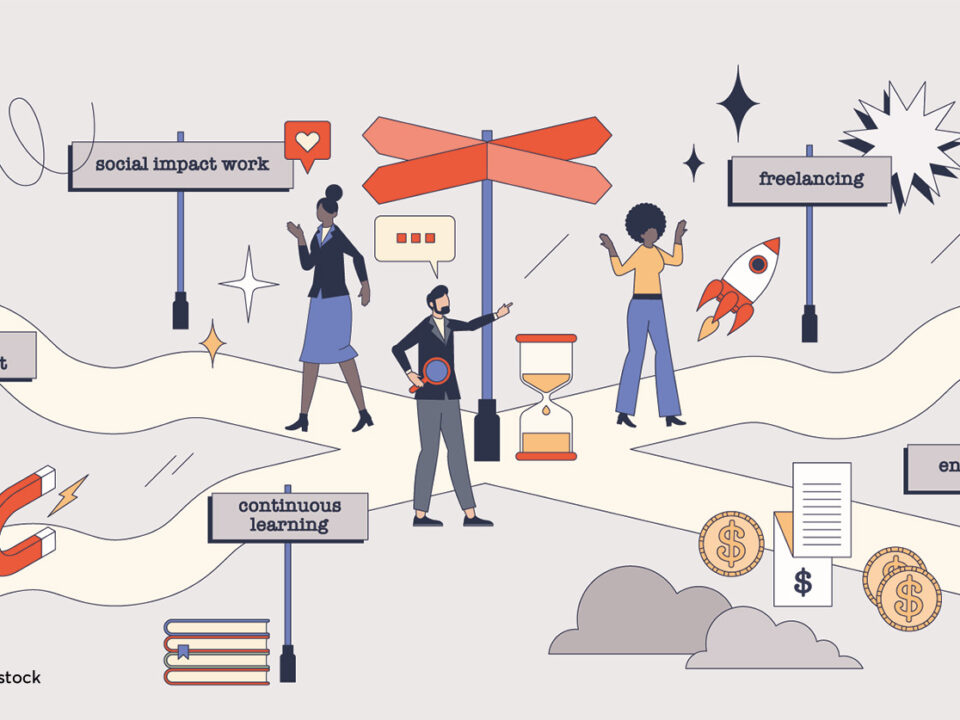AI skill gaps in the Greek and EU labour market: a competitiveness roadblock?

Artificial intelligence (AI) technologies are already having a profound impact on European labor markets, including the Greek one, reshaping jobs and the professional skills demanded. Earlier waves of digital, AI-driven technologies (e.g. industrial autonomous robots) were more likely to affect routine jobs, mostly demanding people with medium-level skills or pay, supporting claims of technological automation exacerbating job polarisation. The recent advancement of generative AI technologies has further expanded the frontier of possible jobs that could be partially automated them, with much research highlighting their immense capacity to augment human capabilities. Marked shortages for people in possession of advanced AI skills, for instance in machine learning, data science and AI ethics, are also evident in EU labour markets, hindering economic and productivity growth.
To investigate the extent to which AI technologies have proliferated within EU workplaces and how well-prepared European workers are for the AI revolution, Cedefop conducted a first representative European AI skills survey in 2024. Random samples of adult workers were drawn from eleven EU Member States, representing not only different geographical clustersbut also countries with diverse digital exposures. Overall, information from more than 5 300 EU adult workers was collected. Based on this survey, Cedefop’s recent policy brief Skills empower workers in the AI revolution, which is part of its Digitalisation, AI and the future of work project, sheds light on how extensively AI is used, the impact of automation on job tasks, and the new training needs now facing much of the European, and Greek, workforce.
AI in the workplace: first findings
One of the most striking results of the Cedefop survey is that 28% of respondents use—or see others use—AI tools in their workplace (Figure 1). AI is not being used yet in the workplaces of 55% of employees, suggesting a broad potential for further growth in AI adoption. While 17% are also not entirely certain if AI technology is used, which is indicative of the need for greater awareness and transparency when such tools are introduced in workplaces.
Figure 1: Use of AI in EU workplaces
To the best of your knowledge, do you or your colleagues use any AI tools or systems at your workplace?

The data further reveal the spread of “algorithmic” systems that automate work functions—from detecting faulty products to managing customer recommendations—with about one in seven adult workers usually working with digital tools or applications than can automatically do some of their tasks using algorithms. For instance, 22% of workers are always or often using such automatic digital tools to recognise, translate, transcribe or generate text.
The Great AI divide
The new data reveals that there is a growing divergence in the frequency of use of AI technologies between the leading and lagging European countries. While over on third of workers in Northern European countries (e.g. Luxembourg, Belgium, Germany, France) say that they or their colleagues use AI technologies at their workplace, this is true for less than one in four workers in Poland (24%), Greece (21%) and Spain (16%), respectively.
Meanwhile, in Greece, 31% of surveyed employees note that they spend more timeworking with AI tools than a year ago, highlighting the technology’s increasingly visible role. However, Greece, along with Spain, have the lowest increase and the overall lowest share of AI use in the workplace, showing the need to catch up to other EU countries.
Automation and unemployment
While many express fears about the potential adverse consequences of AI and algorithmic work for employment and job quality, recent studies have tended to alleviate fears of massive job destruction.
A key finding of Cedefop’s survey is that 20% of European workers believe AI could take over more than half of their activities (Figure 2). Overall, the workers in the sample thinkthat an AI system is already better equipped than a human to perform about one out of every four tasks of their job. Despite such marked scope for machine substitution, only 15% of workers in the EU11 sample are afraid that they may completely lose their job due to AI technologies. In some EU countries though, particularly Greece, about 1 in 4 workers express such concern. The survey validates previous analyses that have showed that Southern and Central Eastern European countries are more vulnerable to the threat of automation.
Figure 2: Fear of job loss due to AI
Thinking about how AI tools or systems may impact your work in the next five years, how likely is it that each of the following situations may happen? I will lose my job.

Not all automation leads to job losses, however; it often involves reallocating tasks. Indeed, while 30% of people who use AI report that the technology has replaced some tasks they used to perform, 41% say they have incorporated new or different tasks into their role. A striking 67% indicate that AI has enabled them to do some tasks faster than before, highlighting the marked potential for efficiency and productivity gains that could be unleashed by AI. Greece stands out in that 78% of adult workers in the country now do their tasks at a faster pace, following the use of AI tools in their job.
New capabilities and training gaps
It is undeniable that the integration of new AI technologies in workplaces will demand new skills. 61% of respondents agree that they will need to acquire additional skills to handle AI’s impact on their job, a share which is considerably higher in Greece (67%). 41% admit to having an AI skill gap, namely they need to further develop their knowledge and skills in using AI tools and systems for their job. Affecting 51% of workers, such an AI skill gap is particularly acute in Greece. What is concerning is that a notable 44% (42% in Greece) believe their employer will not provide such necessary training. This mismatch underscores the importance of bolstering learning pathways and upskilling strategies at both public and private levels, so that all workers—regardless of occupation—can benefit from the digital transition. It demonstrates that need for closer employer-employee consultation and cooperation to ensure that AI is adopted within organisations in a transparent, fair, secure and human-centric manner.
Inclusion and equity challenges in VET
Cedefop’s AI survey further reveals concerns about AI widening gaps among different groups of workers. Middle-skilled, routine jobs are especially vulnerable to displacement by machines. The challenge, then, for policy is to assist the transition of people whose jobs are under threat with adequate upskilling, reskilling and social insurance schemes.
There is also great divergence in opportunities to train in AI-related knowledge, with only 15% of workers in the eleven EU countries (14% in Greece) participating in some education or training activity to further develop their AI skills in the last year. Such AI skills trainingremains less accessible for older and female employees and those under precariousemployment contracts and in smaller-sized workplaces. All of this highlights the urgent need for inclusive policies that support workers at greater risk of being left behind. But it is also apparent that significant efforts need to be made to further upscale and customise the provision of AI skills training according to the needs of different sectors and occupations.
The productivity paradox and the need for AI literacy
Despite high expectations for AI, 55% of its users in Europe say they have not yet seen a marked improvement in their job performance. Experts often explain this discrepancy by noting that AI adoption is still in its infancy, with many organizations lacking well-tailoredwork processes or robust training. Recent studies have tended to highlight that while AI has mostly facilitated productivity gains among novice and lower-skilled individuals, it has been less influential among higher-skilled professionals. Evidence of long-run aggregate productivity gains has also been weak. Cedefop’s evidence highlights that overcoming gender and age-segregation associated with the use of AI technologies in labour market will be crucial to facilitating potential AI productivity gains, given that females and older workers are less likely to deploy AI as part of their work.
Starting from the basics: The need to boost AI literacy
Using a unique scale for assessing individual’s AI literacy, the study highlights a low level of AI literacy among many adult workers in Europe. Between 40% and 62% of respondents report insufficient understanding of essential issues such as how algorithms function, the role humans play in developing AI, and how to identify potential biases or ethical risks. It follows that fostering a broad-based “AI culture” is crucial going beyond purely technical skills, to include the ability to interpret AI’s outputs, understand its limitations, and see its ethical and societal implications.
Toward an inclusive transition
For policymakers and company leaders, Cedefop’s survey data point to the urgency ofpromoting social dialogue and a robust supply of continuing training initiatives. Working with unions and employers helps validate these measures and accelerate AI adoption while ensuring automation is not merely a cost-cutting tactic. Evidence suggests that organizations with stronger employee participation institutions and well-structured training pathways show more positive AI outcomes. In Greece, fostering such a culture can not only enhance competitiveness but also mitigate the uneven effects of technological change on different demographic groups.
All in all, AI is a powerful catalyst that goes beyond simple automation as it has marked scope to redesign production models and services, deepen knowledge transfer, foster innovation and worker autonomy and connect communities. The real challenge is to manage the transition so that it delivers benefits for European competitiveness, in line with the recent Draghi report, while avoiding the exclusion of any segment of the workforce. Training, re- and upskilling will prove vital to unlocking the potential of these technologiesand for ensuring equitable gains for both businesses and workers. Cedefop’s researchconfirms we are witnessing a shift of enormous gravity—but also one that can pave the way for more modern, efficient, and equitable labour markets, provided that people and their skills remain at the centre of economic development strategy.
-
 Konstantinos Pouliakas
Konstantinos Pouliakas
Senior Expert, Department for Skills and Labour Market, European Centre for the Development of Vocational Training (Cedefop)



